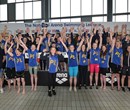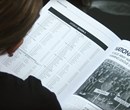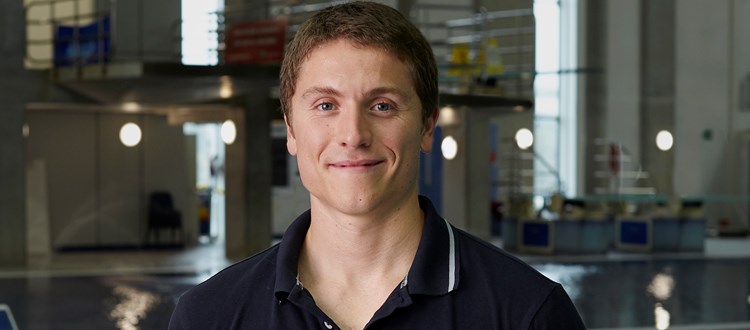
Swimmers in this squad have qualified for major international competitions (Olympic Games, World Championships, European Championships). Swimming is their highest priority outside of any education commitments. Athletes in this squad train 9/10 sessions of 2h to 2h30 combined with 3 land-based sessions.
Senior swimmers on this squad have achieved standard times requested by the coach. Under 18 years athletes were selected by the coach based on performances at the British Championships and Junior or senior international competitions. Athletes in this squad train 9 sessions of 2h to 2h30 combined with 3 land-based sessions.
read more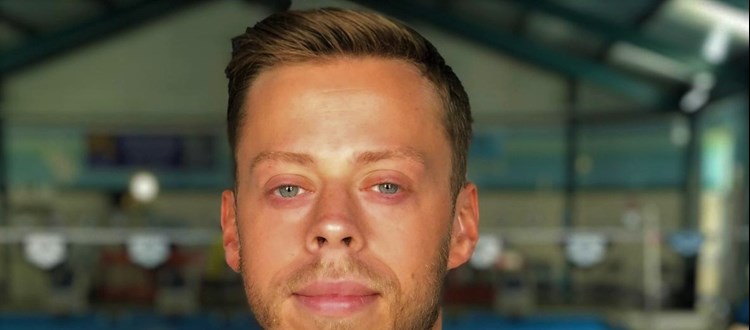
Full time athletes only with swimming as their highest priority outside education. They must be competing and training at a national level in a major swimming nation. For example, the English Summer Championships. (or equivalent if relocating from outside the UK).
Training involves 9 pool based training sessions spread over 6 days with gym training three times a week.
read more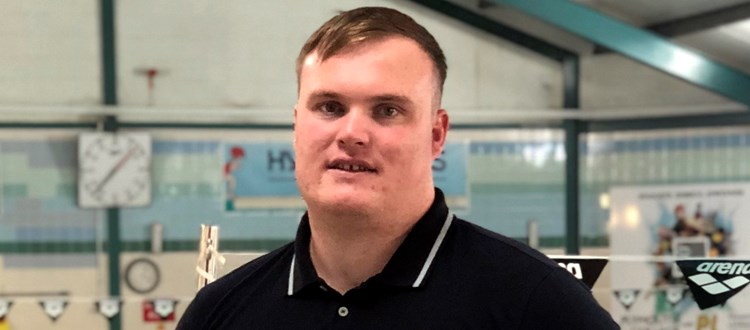
Athletes are usually 14 years and under and will train to qualify and compete at the British and/or English Summer National Championships. They must meet a combination of qualifying times for the SW Age Group Championships and/or be selected to compete in a Home Nations National Championships. They will also be able to complete a series of training test sets.
9 pool based training sessions over 6 days with three gym sessions.
Athletes are usually aged 12 - 14 years and will have qualified to compete in the ASA South West Age Group Championships in a combination of events. They will also be able to complete a required training test set.
Up to 9 pool training sessions a week over 6 days with three gym sessions.

Athletes are usually aged 14 and under and aiming to qualify for the ASA South West Age Group Championships. Athletes will have competed at the previous season's Devon County ASA Age Group Championships in a given combination of events. They should also be able to complete a training test set.
7 pool training sessions per week over six days (rest day Friday). Two gym sessions.
Junior 1
Athletes are usually aged between 9 and 13 and preparing to move to County Development or Regional Age Group 2 squads. They will have competed in a range of events during the season and will be able to complete training test sets.
Training - 6 pool based sessions per week split between Plymouth College pool, Plympton pool and the Life Centre (rest day Monday) plus one gym session at Plymouth College.
Junior 2
Athletes are usually aged between 8 and 11 and preparing to move to Junior 1 squad.
Training is at Plymouth College pool 5 times a week (rest days Monday and Thursday).
Athletes aged between 7 and 10 and preparing to move to Junior 2 squad. They will continue to develop the 4 stroke technique as well as starts, turns, underwater phases and finishes.
Junior 3
Training is at Plymouth College pool 4 days a week (Tuesday, Wednesday, Saturday and Sunday).
Junior 4
Athletes are usually aged between 6 and 9 years old and preparing to move to Junior 3. The emphasis is on developing the four stroke technique as well as starts, turns, underwater phases and finishes.
Training is at Plymouth College pool 3 times a week (Wednesday, Friday and Saturday)
The J4 squads are aimed at younger swimmers in an attempt to bridge the gap between the learn to swim programmes and club swimming. Children will be aged between 6 and 8 years old and in Stage 7 or above of their learn to swim programme.
The aim is to give younger swimmers more experience in the pool, with lots of emphasis on technique and developing skills in all four strokes, tumble turns and racing dives while at the same time having lots of fun.

Strength and Conditioning (S&C) is described as improving the physical qualities of athletes to aid sports performance and prepare for competition. This is done through increasing strength, power and speed. A key aim for S&C is to decrease the likelihood of injury by creating a robust athlete. This means that the athlete can spend more tie in the pool and improving their swimming.
S&C is periodised throughout the training year meaning that we work on different parameters of performance each cycle. This generally works in the order of strength – power – speed/specific, the closer we get to a major competition.
At Plymouth Leander, S&C sessions start with our Junior 1 squad and go all the way to High Performance. Sessions are structured to develop the athlete’s abilities according to maturation, movement competency and physiological balance. For our younger squads the key focus is on FUNdamental movement skills and building foundational strength. As we progress through the performance paradigm, we can increase the specificity of training and use more advanced techniques of strength and power training such as Olympic lifting.
The S&C facilities are based at Plymouth College and host an array of modern gym equipment. The gym has 3 squat racks and 3 platforms on one side and various machines and free weights on the other. A key design point of the gym is the large floor space to carry out locomotive exercises and bodyweight control movements.
Latest News
-
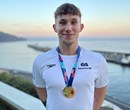
Harry Stewart wins Gold at the European Championships
April 24, 2024 -
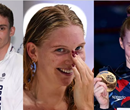
-
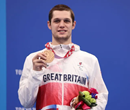
Reece Dunn: Paralympic swimmer 'shocked' to get MBE
January 01, 2022 -
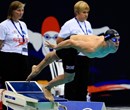
Exciting times for Plymouth Leander’s stars of the future
January 31, 2020 -
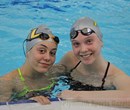
PL stars travel to Luxembourg with Swim England squad
January 22, 2020


